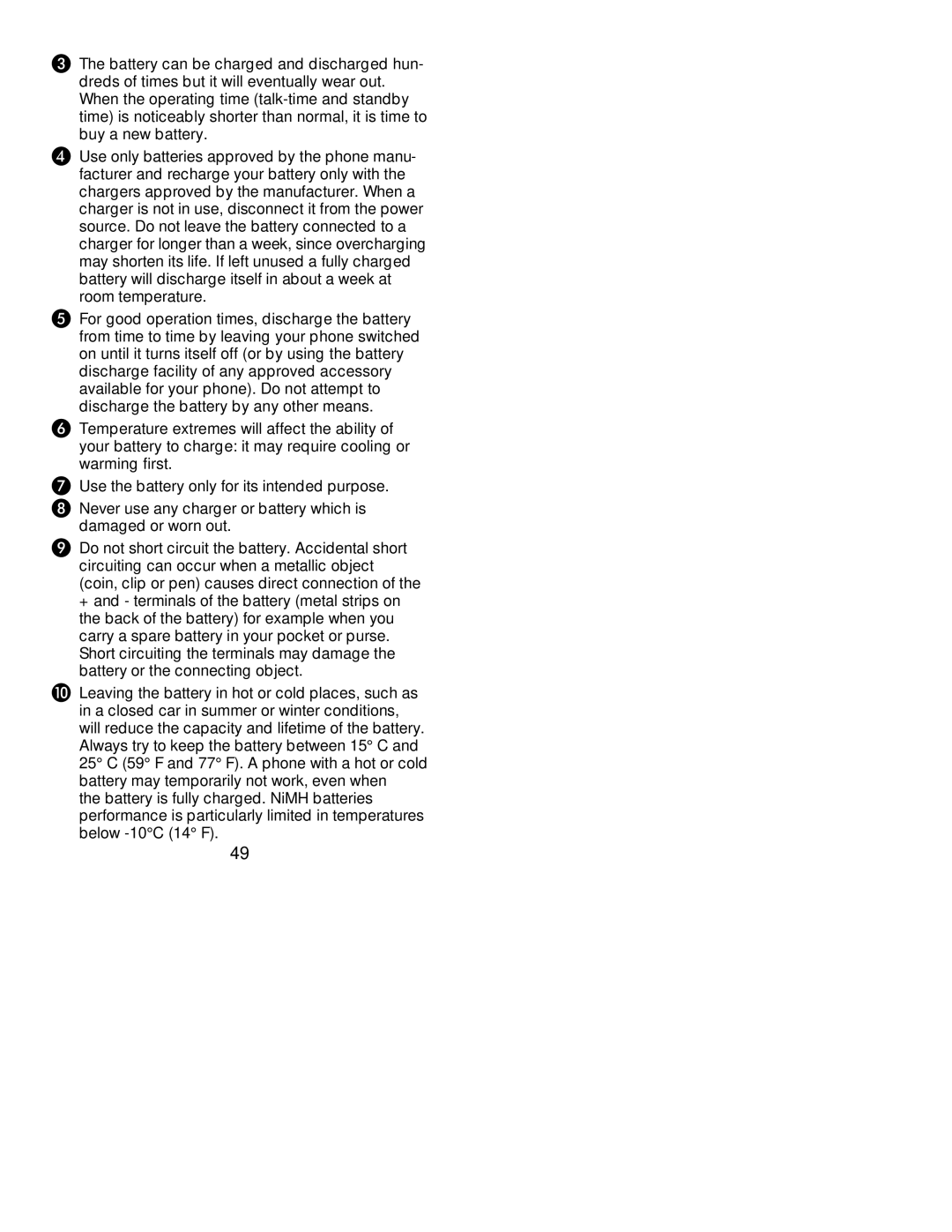CThe battery can be charged and discharged hun- dreds of times but it will eventually wear out. When the operating time
DUse only batteries approved by the phone manu- facturer and recharge your battery only with the chargers approved by the manufacturer. When a charger is not in use, disconnect it from the power source. Do not leave the battery connected to a charger for longer than a week, since overcharging may shorten its life. If left unused a fully charged battery will discharge itself in about a week at room temperature.
EFor good operation times, discharge the battery from time to time by leaving your phone switched on until it turns itself off (or by using the battery discharge facility of any approved accessory available for your phone). Do not attempt to discharge the battery by any other means.
FTemperature extremes will affect the ability of your battery to charge: it may require cooling or warming first.
GUse the battery only for its intended purpose.
HNever use any charger or battery which is damaged or worn out.
IDo not short circuit the battery. Accidental short circuiting can occur when a metallic object (coin, clip or pen) causes direct connection of the + and - terminals of the battery (metal strips on the back of the battery) for example when you carry a spare battery in your pocket or purse. Short circuiting the terminals may damage the battery or the connecting object.
JLeaving the battery in hot or cold places, such as in a closed car in summer or winter conditions, will reduce the capacity and lifetime of the battery. Always try to keep the battery between 15° C and 25° C (59° F and 77° F). A phone with a hot or cold battery may temporarily not work, even when
the battery is fully charged. NiMH batteries performance is particularly limited in temperatures below
49
